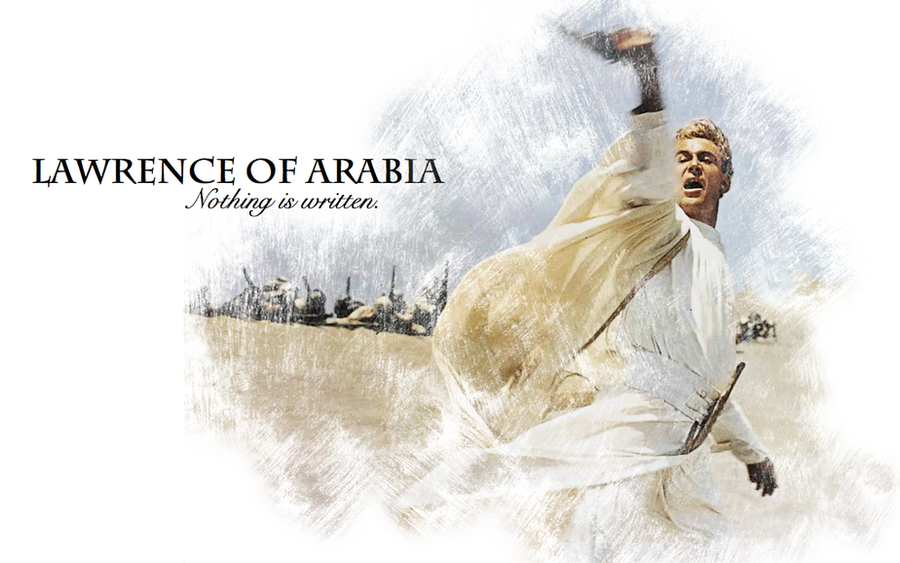
Mark Mardell made one of those casual but deliberate comments that lazily feed into the anti-Western flow of the BBC’s narrative blaming the West for everything wrong in the world:
After the first world war the imperial powers of France and Great Britain, greedy for oil, carved up the Ottoman Empire between them
Well no…and ‘carved up’?…the post war negotiations were intense and protracted and included Turkey. Not only that but they attempted to take into account the various competing demands from different groups in the affected regions.
‘Lawrence of Arabia’, who was no friend of Imperialism, and was deeply involved in the negotiations, said in a letter to the new commissioner of ‘Irak’ in 1928:
‘Bagdad requires the diplomatic, so much more than the adminsitrative understanding.’
So immediately you can see that concerns about diplomacy were a high priority. In other words dealing with the demands of various factions within and without Iraq was recognised as the main challenge.
Good though that some liberal commentator, not having the close personal relationship with the area or the extensive knowledge of it that Lawrence had, feels better able to pronounce judgement on events of the day with that extraordinary hindsight they all have.
Lawrence believed that the negotiations and final plans drawn up by the allies were the best that could be achieved and were a ‘success’:
‘As I get firther and furhter away from things the more completely do I feel that our efforts during the war have justified themselves and are proving happier and better than I’d ever hoped. And some of this good progress is surely due to my keeping out of an area that I care too much for?’
By coincidence the Sunday Telegraph has a book review of ‘Baghdad’ by Justin Marozzi.
Baghdad, long portrayed as the centre of the Muslim ‘golden age of science’ had, of course, a much more chequered history, most of it soaked in blood…and much of that ‘science’ being inherited by the Muslim conquerors fom the previous civilisations and kept alive by Christian and Jewish scientists and scholars….‘much of this was in spite of Islam, not because of it.’
What it also says, which is of interest here, is that after WWI the British took over and ‘busily set about improving things, from sanitation, bridge building and road repairs to irrigation, constitutions and government’….also stopping cruelty to animals and abolishing slavery that was still rampant there.
History is not what the BBC so often likes to portray. Which brings us onto Mardell’s ‘greedy for oil’ comment.
Oil played little part in the thinking. The only known oil was in Iran at the time. Iraq was suspected to have oil…only found in 1927, and the Brits, so greedy for oil, gave Iraq independence in 1932.
The Arabian peninsular was also known to have areas where oil was seeping from the ground and yet was not added to the Imperial ‘want list’, being allowed to form its own government.
Exploring the issues about oil exploration and exploitation I came across this BBC article which claimed that:
For nearly 50 years the Iranian oil industry was controlled by the British Anglo-Persian Oil company.
You can still see the names of British companies on some of the older plant. But the British only paid $75,000 (£40,000) for the original 60-year concession – and a small share of the profits.
To this day, that is the source of enormous bitterness in Iran.
Just the usual deliberately uninformed BBC attack on the British at play in the Middle East.
The truth about oil production in Iran/Persia tells a completely different tale:
Sir Arthur Hardinge, then the British Minister in Tehran, helped D’Arcy’s team to meet with Persia’s Prime Minister Amin al-Sultan. Marriott is reported to have paid £10,000 to the Persian government officials to secure a concession.
On 28 May 1901 the concession was signed by the Shah. It granted D’Arcy to explore, drill, produce, and export petroleum in Iran (with exception of five northern provinces close to Russia) for a period of 60 years. D’Arcy was required to form a company within two years for this purpose. The Persian government was to receive £20,000 in cash, £20,000 in shares from the company, and 16% of profits made by the first or any other company formed by this concessionaire. Kitabchi Khan was rewarded too; he continued to be on D’Arcy’s payroll (£1,000 a year) but acting as representative of the Persian government! D’Arcy formed the First Exploration Company in May 1903 with a capital of £600,000, half of which belonged to him.
Reynolds had to hire local laborers and security guards and pay to tribal chiefs for their cooperation. He also put together a technical team of Polish and Canadian drillers, an Indian doctor, and a wiry American engineer C.B. Rosenplaenter as his deputy.
The first concession to explore for oil was given in 1901, it was only in 1908 that oil was actually found after huge expense and many unproductive drilling attempts.
The commercial enterprises that set out to drill for oil did so at enormous cost to themselves, funding all the equipment, manpower, expertise and other operating costs, risking huge losses if the drilling was unsuccessful, the costs being born by the investors whilst Iran took a profit as well as concession payments.
The oil companies were hardly exploiting Iran which in no way could have found or utilised the oil itself.
The investment by a western, commercial company of at least £600, 000 in 1903 was of course an enormous sum of money….making a mockery of Mardell’s casual assertion that this type of thing was just ‘greed’ and gives the lie to the BBC article that claims that Iran was somehow shortchanged in its dealings with the oil companies…they after all negotiated the deals themselves with the companies.
The BBC makes it sound so easy…just wander into a country at will, scoop up the oil, flog it at a high price, keep profits for yourself and dish out a few glass beads to keep the natives happy.
Not quite the truth.



